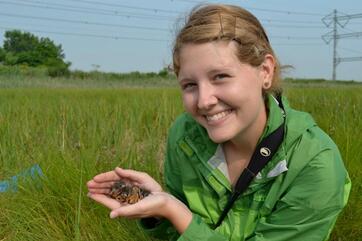 July 20th marks the 50th anniversary of the Apollo 11 lunar landing. This was a remarkable feat of human ingenuity and technological prowess. It showed us that we are capable of extraordinary feats when we are focused and work together towards a single goal. Today, humanity is facing our biggest challenge yet, climate change. Our seas are rising around us. Species are disappearing. The planet is getting hotter. However, we still have time to save our "little blue dot". This time, however, we must work with nature, rather than relying solely on technology to save the world. Plants have the power to remove several metric tons of carbon dioxide from the atmosphere and store it for long periods of time in their stems, leaves, roots and the soil. As long as these natural ecosystems remain undisturbed, most of the carbon will remain in the ground and trees for a 100 years or more. Not only do these natural lands provide the benefits of carbon storage, but they also act as reservoirs during flooding events, provide habitat for fish and wildlife, and improve the lives of the people that enjoy nature through fishing, hiking, and other outdoor activities. These many benefits will be lost if we do not take action now. By preserving natural areas, we can take a giant leap to halt the devastating effects of climate change, one reduced carbon footprint at a time.
1 Comment
|
Archives
January 2020
Follow UsDonate |

